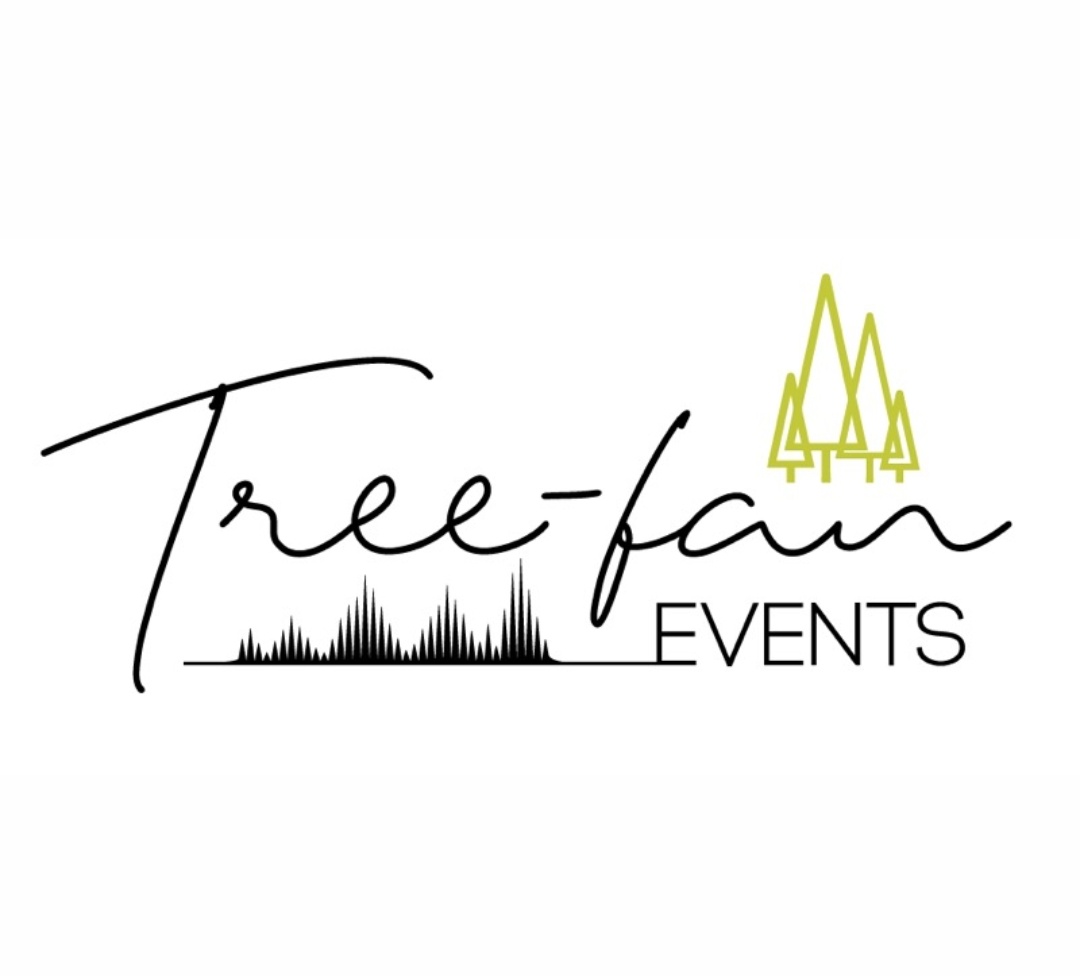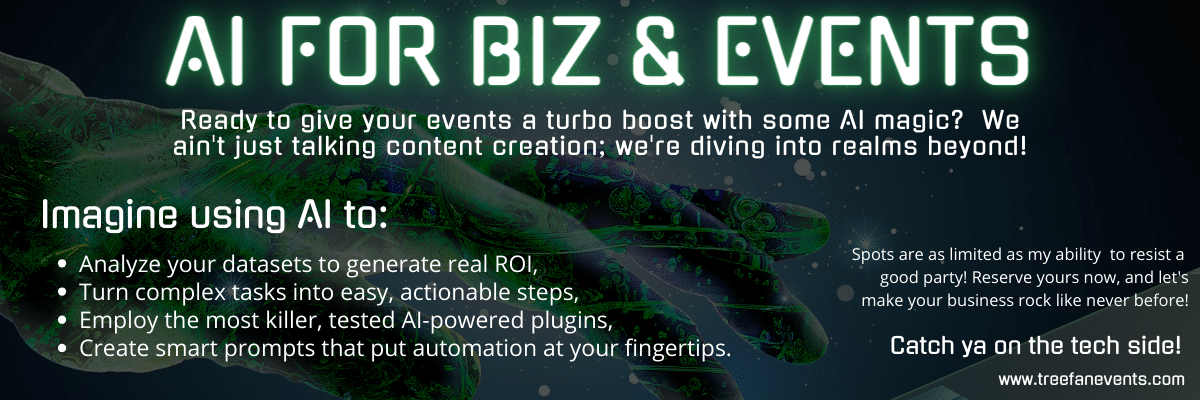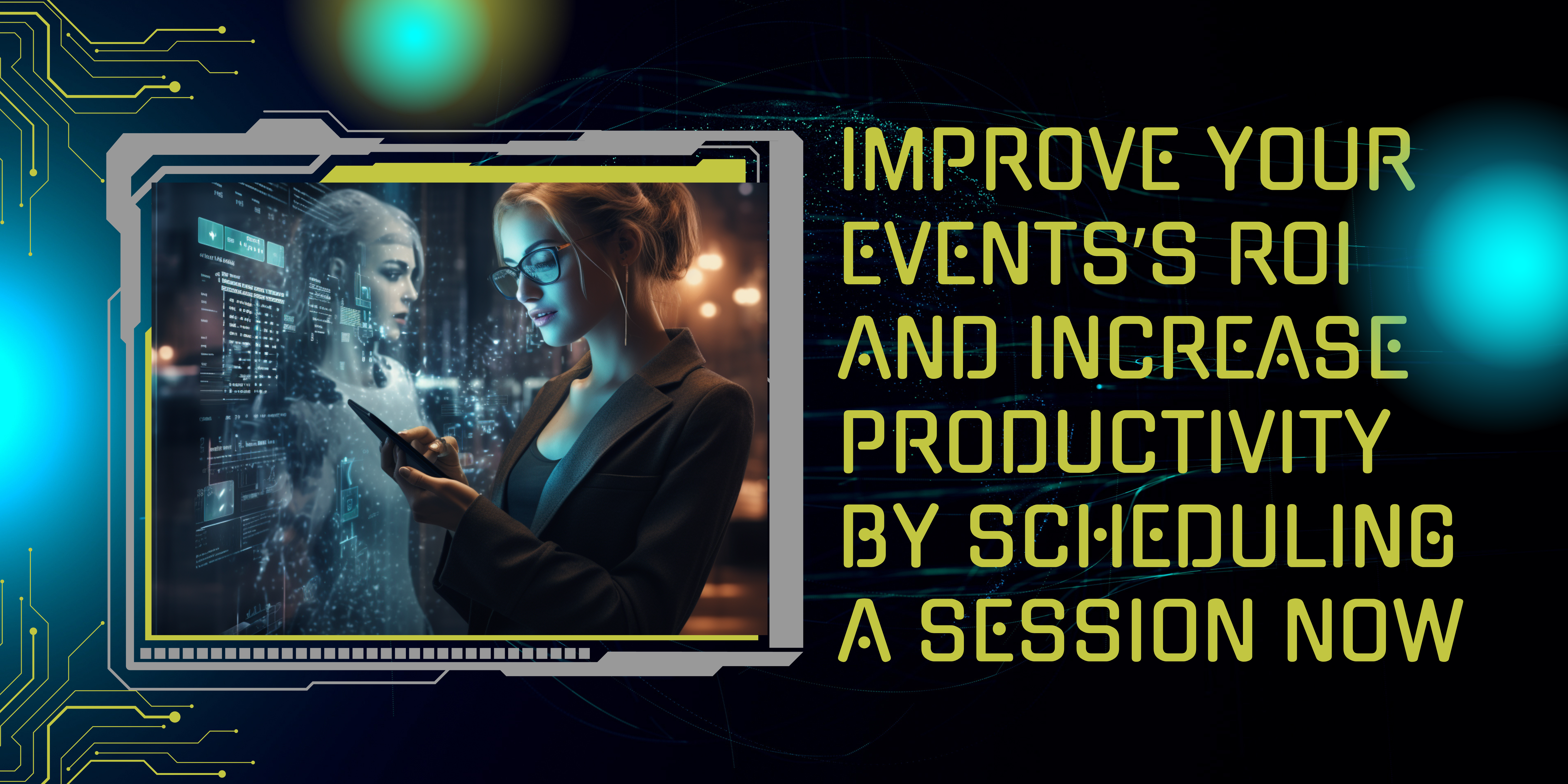The world of event planning is constantly evolving, and event professionals are always on the lookout for innovative tools and technologies to enhance their efficiency and deliver exceptional experiences in order to become the Event Planner Superhero they’ve always knew they are capable of becoming. In the most recent months, Artificial Intelligence (AI) has emerged as a game changer, providing event professionals with powerful tools to streamline processes, automate repetitive tasks, and gain valuable insights. In this blog post, we will explore how event professionals can leverage AI tools to revolutionize their work, and elevate event experiences to new heights.
- Smarter Attendee Engagement: AI-powered chatbots and virtual assistants have revolutionized the way event professionals engage with attendees. These tools can provide instant responses to queries, assist with registration, send personalized event updates, and even offer recommendations based on attendees’ preferences. By automating these tasks, event professionals can focus on more complex and strategic aspects of event planning.
Example: Eventbrite’s chatbot, named “Atendy,” is a new AI-powered virtual assistant that assists with event registration, ticketing, and attendee inquiries. Atendy can provide instant responses to frequently asked questions, guide attendees through the registration process, and send personalized event updates based on attendee preferences.
-
Efficient Event Planning: Planning an event involves numerous tasks, from managing budgets to coordinating logistics. AI tools can automate time-consuming processes, such as venue selection, budget allocation, and vendor management. Additionally, AI algorithms can analyze historical data to provide valuable insights on attendee preferences, enabling event professionals to tailor experiences to meet attendees’ expectations.
Example: Cvent’s Event Management Platform utilizes AI algorithms to help event professionals select the ideal venue for their events. By analyzing historical data, attendee preferences, and budget constraints, the platform recommends venues that align with the desired event objectives, saving time and effort in the venue selection process.
-
Data-driven Decision Making: AI tools can analyze vast amounts of data collected before, during, and after an event, providing event professionals with actionable insights. By tracking attendee behavior, sentiment analysis, and social media interactions, AI tools can help understand attendees’ preferences and identify areas for improvement. This data-driven approach enables event professionals to make informed decisions, optimize event experiences, and drive better results.
Example: EventMetric is an AI-powered analytics tool that helps event professionals gain valuable insights from attendee data. It analyzes attendee behavior, sentiment analysis, and social media interactions to provide event professionals with actionable insights. By understanding attendee preferences, event professionals can make data-driven decisions to improve future events.
-
Enhanced Personalization: Personalization is the key to creating memorable event experiences. AI tools can analyze attendee profiles, preferences, and behavioral patterns to deliver personalized recommendations for sessions, networking opportunities, and exhibitors. By tailoring event experiences to individual needs, event professionals can increase attendee satisfaction, engagement, and loyalty.
Example: Grip uses AI to analyze attendee profiles, preferences, and behavioral patterns. Based on this analysis, the platform can recommend personalized sessions, smart match-making, networking opportunities, and exhibitors for each attendee. By tailoring event experiences to individual needs, event professionals can significantly increase attendee satisfaction and engagement.
-
Streamlined Event Operations: AI tools can streamline various event operations, such as ticketing, registration, and check-in processes. Facial recognition technology can expedite the check-in process, reducing queues and enhancing the overall attendee experience. AI-powered scheduling tools can optimize session timetables, avoiding conflicts and ensuring a smooth flow of events.
Example: Zenus, an AI-powered facial recognition tool, streamlines the check-in process at events. By capturing attendees’ faces and matching them to their registration profiles, Zenus eliminates the need for manual check-ins and reduces queues, resulting in a smoother and more efficient event experience.
-
Real-time Insights and Feedback: During an event, AI tools can provide event professionals with real-time insights and feedback. Social media monitoring tools can track event mentions, sentiment, and engagement, enabling event professionals to gauge attendee satisfaction and address any concerns promptly. This real-time feedback loop allows event professionals to make adjustments on the fly, ensuring a seamless and successful event.
Example: Sprout Social is a social media monitoring tool that event professionals can use to track event mentions, sentiment, and engagement in real-time. By monitoring social media conversations, event professionals can gauge attendee satisfaction, identify areas for improvement, and promptly address any concerns to ensure a successful event.
Needless to say, as #eventprofs working and producing events in the fast-paced world of events, we’re always on the lookout for that game-changing ace up our sleeve. And guess what? Shimmering with promise and potential, AI, our new digital sidekick, is about to transform you from a regular event pro to a certified superhero. But how does one wield this high-tech magic wand? How do you channel the power of AI to not only enhance your events but to also solidify your status as a top-tier event professional? Well, it’s not about replacing the human touch with machines; it’s about augmenting your capabilities and taking your prowess to a whole new altitude. Here’s your guide to harnessing AI and amplifying your value in the event industry:
1. Be the Efficiency Guru
Knowing how to automate mundane tasks with AI makes you the efficiency wizard. You’ll execute more in less time, and who doesn’t love that?2. The Data Whisperer
AI tools can pull insights out of mountains of data. Translate this data into actionable strategies, and you’ll be the hero clients didn’t know they needed.3. Queen of Personalization
AI can help you offer hyper-personalized experiences to attendees. You’re not just another event planner; you’re the maestro of memorable experiences.4. Risk Mitigator Extraordinaire
AI can help predict and prevent problems. From weather impacts to attendee flow issues, you’ll have a plan for every curveball.5. Trendsetter
Being an early adopter of AI tech positions you as an industry leader. Your forward-thinking approach will be a magnet for innovative clients.6. Budget Whisperer
AI can help optimize costs. Show clients how to get more bang for their buck, and you’ll be in high demand.7. Scalability Captain
With AI, you can manage larger, more complex events without breaking a sweat—or the budget.8. Networking Ninja
AI-powered platforms can make meaningful connections among attendees based on data, enhancing networking opportunities at your events.9. Accessibility Advocate
Use AI for real-time translation, closed captioning, and other accessibility features. You’re not just planning events; you’re making them inclusive.10. The Show Must Go On
AI allows for quick pivots and adaptability. If something goes south, you’ll be prepared to switch gears in no time.
So there it is! The road to becoming the event-planning superhero you were always destined to be. Ready to unleash your newfound AI powers?
Case Study: IBM Watson at IBM Think Conference
IBM Think is an annual conference that brings together business leaders, innovators, and technologists to explore the latest advancements in technology. Back in 2019, IBM incorporated AI tools for the first time, specifically IBM Watson, to enhance the attendee experience and improve event operations.
IBM Watson, an AI-powered platform, was utilized in various ways during the conference:
-
Personalized Event Recommendations: Attendees were asked to provide their interests and preferences during the registration process. Using AI algorithms, IBM Watson analyzed this data and made personalized session recommendations for each attendee. This resulted in a more tailored and relevant experience, increasing attendee satisfaction.
-
Intelligent Networking: IBM Watson was integrated into the event’s networking app, suggesting potential connections based on attendees’ profiles, interests, and professional backgrounds. This AI-powered networking feature facilitated meaningful interactions and fostered valuable connections among attendees.
The results were impressive:
-
Attendee Satisfaction: The personalized session recommendations received positive feedback from attendees, with 92% expressing satisfaction with the sessions they attended. This demonstrated the effectiveness of using AI tools to enhance the event experience.
-
Networking Success: The AI-powered networking feature resulted in a significant increase in meaningful connections made during the conference. Attendees reported a 30% increase in the number of valuable professional connections compared to previous years.
These statistics highlight the tangible benefits of incorporating AI tools, such as IBM Watson, in event planning. By leveraging AI technology, IBM Think was able to deliver a more personalized and engaging experience for attendees, resulting in higher satisfaction levels and increased networking opportunities.
Statistics:
-
According to a study by Grand View Research, the global AI market in the event industry is expected to reach $1.2 billion by 2027, growing at a CAGR of 24.9% from 2020 to 2027. This statistic indicates the increasing adoption and potential of AI tools in the event industry.
-
A survey conducted by EventMB revealed that 47% of event professionals believe that AI will have a significant impact on the event industry in the next five years. This shows the growing awareness and recognition of the potential benefits of AI in event planning.
-
In a case study conducted by Certain, an AI-powered event automation platform, event organizers saw a 20% increase in attendee engagement and a 15% increase in event revenue when using AI-powered personalization techniques. These statistics demonstrate the effectiveness of AI in driving attendee engagement and boosting event outcomes.
These statistics and case studies provide evidence of the positive impact AI tools can have on event professionals’ work. By leveraging AI-powered technologies, event professionals can streamline operations, enhance attendee experiences, and achieve better results in the ever-evolving event landscape.





